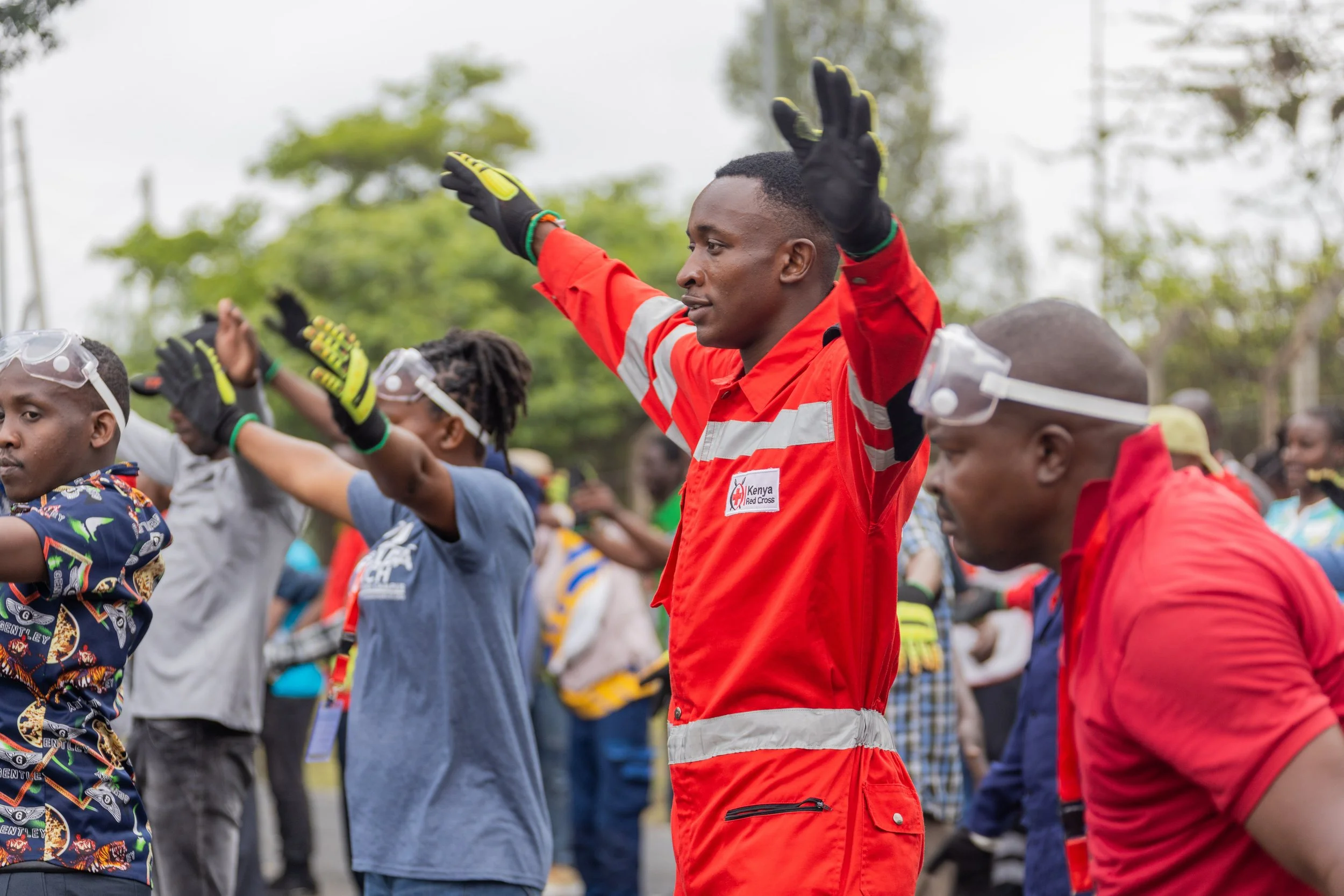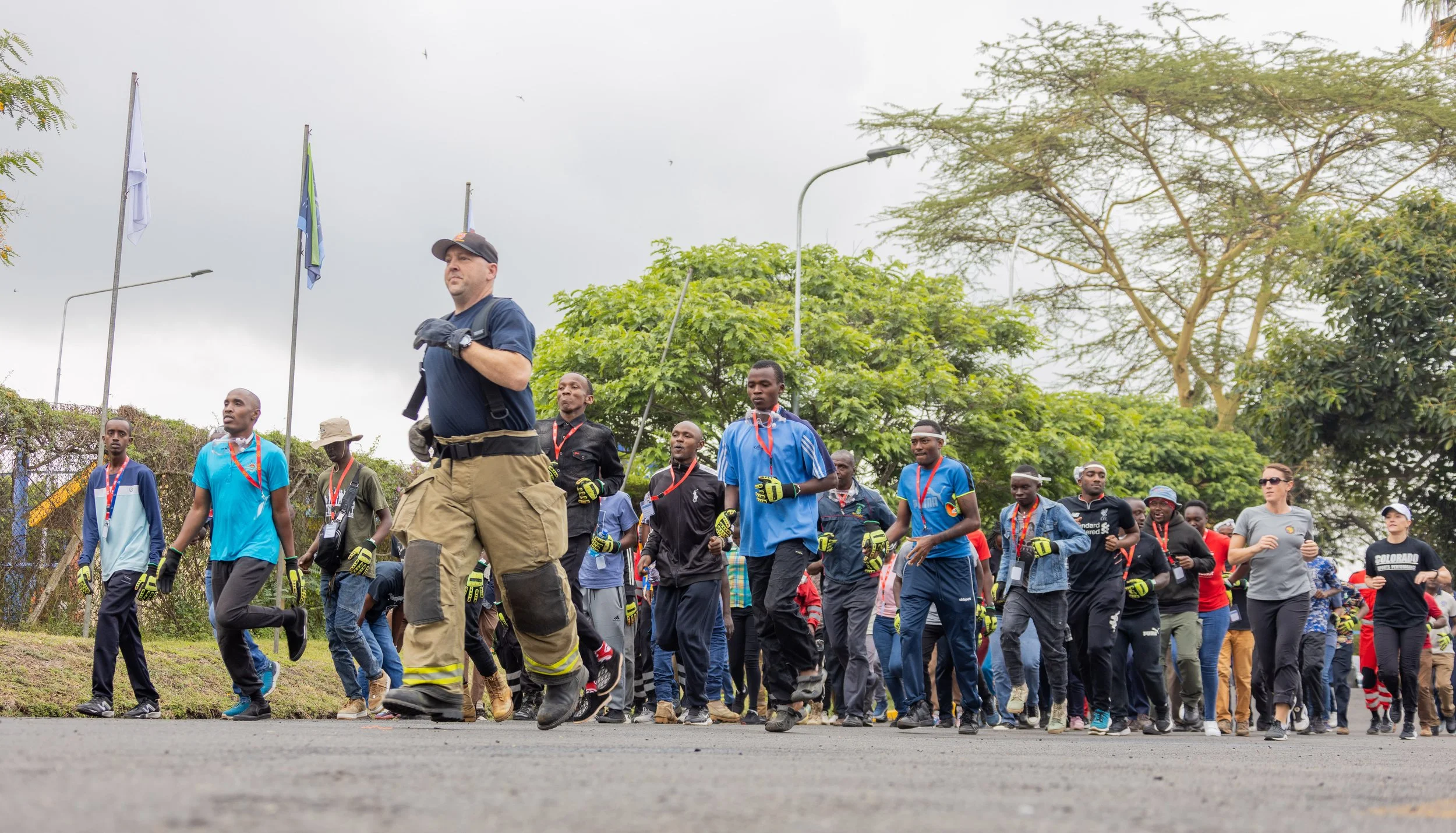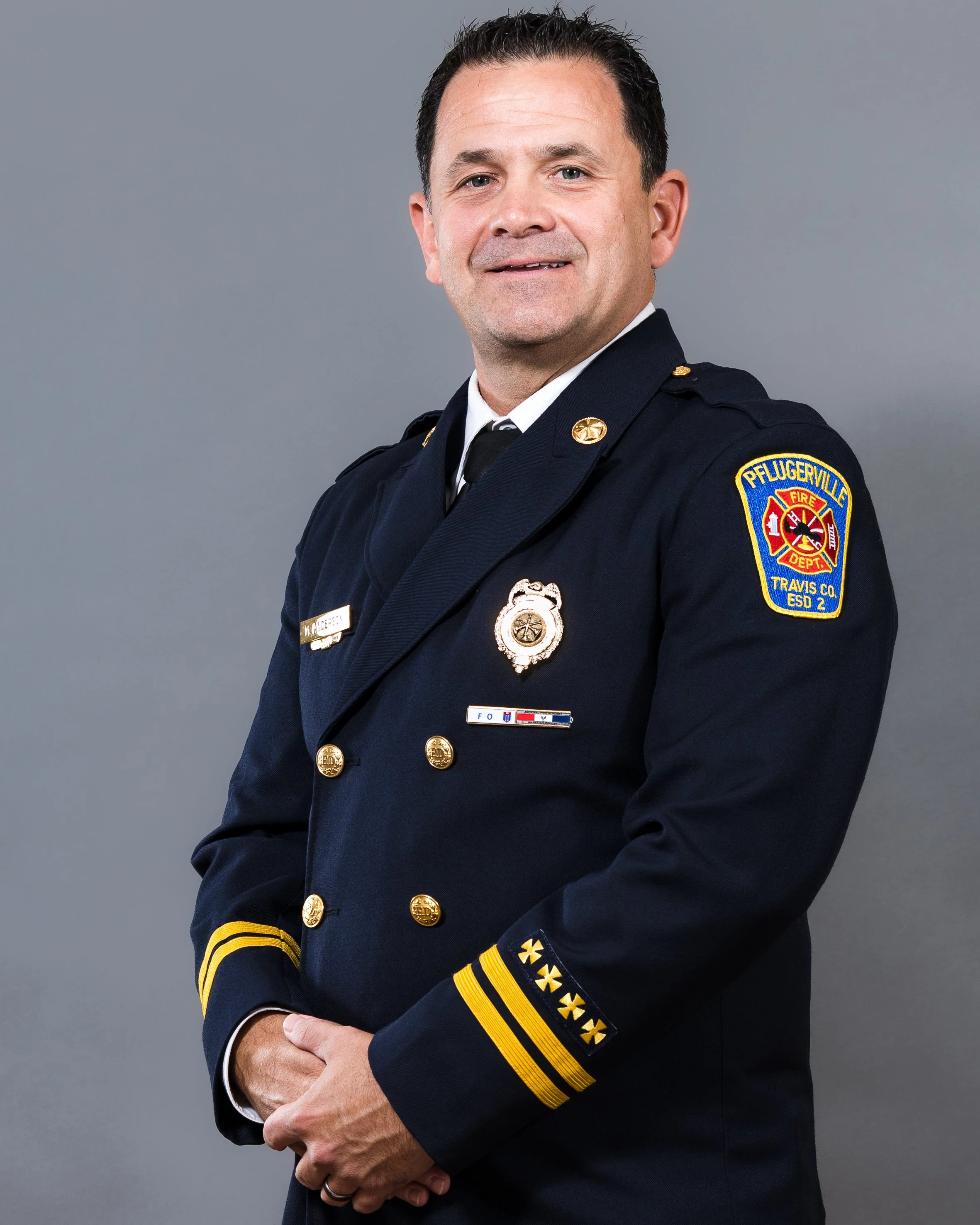by Michael Anderson
Firefighter Wellness can be thought of as the firefighter encompassing their state of health including physical, mental, emotional and spiritual fitness. Firefighters should strive to improve their wellness and work to take steps in each of these areas to improve their lives and serve a very long career.
Fire service organizations have long been investing in the development of resources for fitness and items such as medical screenings. In recent years, more resources have been dedicated to behavioral health to highlight the needs of firefighters to address their mental and emotional fitness. This article will discuss a few of these topics and provide some small steps for individuals to work on their wellness.
Physical fitness:
Firefighting activities require a level of functional performance during response activities. Maintaining a level of fitness is necessary for firefighters and other emergency responders. The physical demands of firefighting along with the working environments require that members develop muscular strength and endurance. This functional fitness should include movements and activities that mimic situations that the firefighter will encounter in their duties.
Stretches, running, and other exercises are very important to a regular and beneficial fitness routine.
Maintaining a level of fitness through cardiovascular and strength training exercises has many benefits. Fitness activities will help firefighters develop muscular strength and endurance, allowing effective use of their equipment and more efficiency on incidents. Fitness helps with fatigue and recovery from strenuous work. The improved range of motion, strength, balance, and coordination also helps prevent injuries of firefighters. Additionally, fitness improves cardiovascular and respiratory system performance. Improvements in these areas both improve performance and overall health.
Medical Evaluations:
Routine medical evaluations are another component of firefighter wellness. Cardiovascular disease and occupational cancers continue to be leading causes of firefighter deaths in the United States. Several medical risk factors have been linked to line of duty death and injuries. The recently revised NFPA 1580 standards provide guidance on the areas to be evaluated during your medical exam.
The benefits of routine medical evaluations can be summed up in one word: detection. Early detection of medical conditions such as high blood pressure, high cholesterol, obesity, diabetes, and others will allow for treatment that can positively impact the risks of firefighters suffering a medical related emergency. Firefighters should take action when faced with increased risk factors from these medical conditions. Treatment for these conditions can reduce the impacts on a firefighter health event.
The increased risk of firefighters to cancer has been identified, recognized, and promoted throughout the fire service. Research has been able to link these increases risks to the exposures that firefighters face during their duties. Cancer screenings are encouraged to be included in your medical evaluation. Early detection and treatment have been shown to improve survival while allowing for reduced costs and less invasive procedures.
Behavioral Health:
The impact of the emotional stress that firefighters face is nothing new to those who serve. Many of us have seen our fellow firefighters experience emotional trauma with various impacts to their lives and careers. Suicides amongst first responders have been increasing at an alarming rate now that reporting mechanisms are in place. Research continues to show that ourselves and our colleagues are plagued by post-traumatic stress and the effects of self-coping activities that many choose to use to deal with these stresses.
A critical step in improving behavioral health is the understanding at the individual level and the organizational level that stress reactions to our job duties are normal. Developing a positive culture around the job stress and supporting members that need assistance can help ensure that mental and emotional fitness can be improved. As an organization, developing programs that look to support firefighters who are suffering from stress can be beneficial on the mental well-being of employees. Programs should look to ensure that members have access to specialized services that understand PTSD, firefighter stressors, alcohol and substance treatment, along with the ability to assist members with other areas of their lives that can impact their mental wellness.
Simple steps towards general wellness:
Maintain levels of functional fitness. Stay active, move often, and work to improve strength and endurance. Push yourself a few days a week and get your heart rate up towards your max heart rate.
Find fun activities with your exercise routine. Adding enjoyable activities to your routine will help you stay motivated in your fitness journey and will help your emotional fitness along the way.
Get an annual medical evaluation. Find a doctor or make an appointment with your physician. Tell them about the dangers firefighter face and ask them to include cancer screenings on a regular basis.
If your examination finds something, take action! Early detection leads to early intervention and vastly improves your ability to reduce your risks of injury or death.
Work hard to sleep well. Evaluate your sleep and find ways to sleep and rest better. Improved sleep can reduce stress and reduce risks.
Understand your stress and attack your stressors. Evaluate the stressors in your life and find ways to reduce how much they impact you. Managing your stress will make you a happier and healthier firefighter.
Find resources for your personal medical and mental health. Resources are available to help you overcome almost anything. Find some and use them when needed.
Physical wellness is key to improving your general wellness!
Taking small and simple steps can have big impacts on your personal and professional life. Begin the journey now and start becoming the best version of you.
Michael Anderson started in the fire service in 1998 as a volunteer in his rural hometown. He has served at Pflugerville Fire Dept. since 2000, currently holding the rank of Deputy Assistant Chief in Administration. With a passion for firefighter health and safety, Michael spent 14 years involved with the NFFF Everyone Goes Home Advocate Program. He has worked with firefighters and organizations across the United States working to improve the health and safety of firefighters. Chief Anderson also serves as an At-Large Director for the IAFC Safety, Health, and Survival Section.
Chief Anderson completed his undergraduate studies in Applied Arts and Sciences from Texas A&M University-Commerce and earned a master’s degree in Public Affairs from the University of Texas- Rio Grande Valley. Michael holds Fire Officer IV, Instructor III, Incident Safety Officer and Health & Safety Officer Certifications. In 2019, he Graduated the NFA Managing Officer program and achieved designation as a Chief Fire Officer from the CPSE Commission for Professional Credentialing in 2023.




